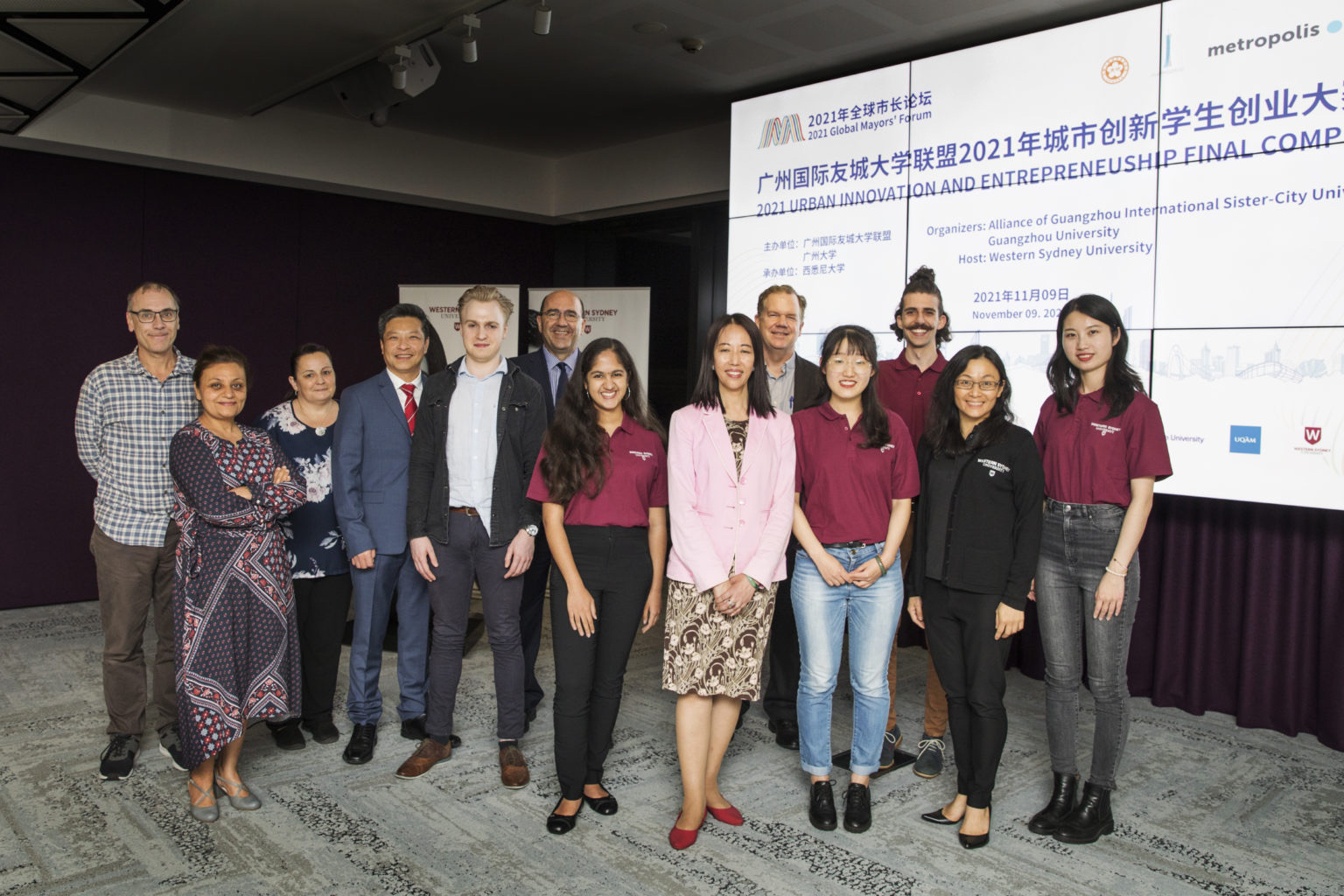SSCSP Program highlights
2025 International Rocket Engineering Competition - The University of Sydney
The competition brought together over 150 student teams from 19 countries. Each team was tasked with designing, building, testing and launching a rocket carrying a 2kg payload with target altitutes of either 10,000ft, 30,000ft or 45,000ft. The competition’s primary scoring criterion is how accurately a team’s rocket reaches its target with additional factors such as design quality, build quality, and technical justifications also contributing to the final ranking.
The USYD Rocketry team were crowned World Champions with their latest rocket, Pardalote. In addition to winning the overall New Horizon Award, the team also secured first place in the Student Research and Developed (SRAD) Hybrid/Liquid Category and were runners-up for both the Jim Furfaro Award for Technical Excellence and the Charles Hoult Award for Modelling and Simulation.
'Participating in the IREC was an incredible learning experience for both myself and the USYD Rocketry Team. It wasn’t just a chance to launch a rocket, it was the culmination of three years worth of engineering, research, and problem-solving at the highest level'. Rickey Purani, University of Sydney.

2025 AIAA Design Build Fly - University of New South Wales, Sydney
The AIAA Design Build Fly (DBF) competition, hosted annually by the American Institute of Aeronautics and Astronautics, is a globally recognised engineering challenge where student teams design, manufacture, and fly a remote-controlled fixed-wing aircraft tailored to a unique mission profile each year. The 2025 competition brought together 111 university teams from 14 countries, pushing students to deliver innovative, mission-optimised aircraft under strict technical and operational constraints.
At the event, they successfully flew Mission 1, showcasing the aircraft's advanced manufacturing, systems integration, and real-time problem solving under competition pressure. It also strengthened their skills in collaboration, technical communication, and time-critical decision making. Representing UNSW on the global stage, they were awarded "The Best Paper Award" sponsored by Design Engineering Technical Committee.
'This has been the most rewarding experience for me and for our entire team. I’ve gained more from this project than from any single course at university. Beyond technical knowledge, I’ve developed the ability to communicate effectively in a professional engineering environment and solve complex problems rapidly under pressure. Most importantly, this competition has deepened my passion for aerospace engineering and opened my eyes to the world of hands-on design a field I’m now more committed than ever to pursuing'. Abram Abdelmasieh, UNSW Sydney.

2024 Australian Rover Challenge - University of Wollongong
The Australian Rover Challenge is an annual robotics competition bringing together university students from Australia and around the world. Participants engage in an intricate full-scale lunar mission using semi-autonomous rovers they've designed and built. Teams tackle tasks such as autonomous navigation, resource collection, and construction all designed to mirror the complexities of space exploration.
'The competition provided invaluable hands-on experience in robotic development, accelerating our abilities and expertise across various technical areas. We are profoundly grateful for the support from UOW, SSCSP, and VDAQ, whose funding and resources were crucial to our participation. This experience has significantly enhanced our capabilities and fostered a spirit of innovation and collaboration that we will use to fuel our further development in future competitions'. Georgi Coddington, University of Wollongong.

2024 AIAA Design Build Fly - University of New South Wales, Sydney
The AIAA Design Build Fly Competition is an international UAV (Unmanned Aerial Vehicle) competition against the top 100 universities from around the world that compete in a series of flight and ground missions over 3-4 days. Students are constrained by a set of mission requirements and must design, build, and fly their plane to maximise their competition score. The team performed incredibly well this
year, managing to secure a 24th place finish out of the roughly 100 teams that attended the competition, their best result yet. Additionally, the team was able to connect with other teams from around the world, meeting up and discussing all things aerospace with universities from the US, Asia and Europe.
'With the team having spent the past few months working on the design and manufacturing of the plane, it was surreal to finally make it to Wichita, Kansas to compete in the DBF 2024 Competition. Arriving to the airfield and hanger, there was an immediate buzz of excitement as we met with the other teams and setup for the competition. With the tireless nights we spent making modifications to our aircraft, we were successful in passing tech inspection on the first go and secured our first points on the scoreboard with a successful ground mission attempt'. Luke Pan, UNSW Sydney.

2024 RoboCup - The University of Newcastle
The University of Newcastle team, NUbots, competed in the Humanoid Kid Size League at the competition, consisting of 16 teams from 14 countries. It involved two teams of four robots playing a game of soccer. The robots must play autonomously, using AI and mathematics to understand the world around them and act. Robots must be humanoid and use only humanoid sensors. RoboCup is a research and education initiative, promoting robotics to students and furthering the field. The NUbots team achieved its best performance in the Humanoid League. The NUbots robots scored eight goals across the competition and won three games, with a 4th place finish.
'RoboCup has been a positive experience for me, contributing significantly to both my personal and professional growth. The team is inclusive and encouraging, and has created a semi-professional environment that allows students to have a gentle introduction to the professional world, while taking on real responsibility. As a Software Engineering student, I have gained valuable skills in programming and collaboration, particularly by developing the confidence and processes to solve complex problems. I have also had the opportunity to improve my soft skills, having a hand in mentoring and outreach for the team. Above all, NUbots has sparked a passion for robotics that I never anticipated, thanks to the support of my teammates and the fun and excitement of RoboCup'. Angelique Herfel, UoN.

2024 International Biomolecular Design Competition (BIOMOD) - The University of Sydney
The University of Sydney BIOMOD team, HubbleBubble created a nanoscale DNA origami structure inspired by the Hoberman sphere to dynamically modulate immune responses in space, as part of an international biomolecular design competition. The team travelled to the BIOMOD Jubilee in Kitakyushu, Japan to present their findings to a panel of international experts and other student teams from around the world. The team received the Silver Project Award and Best Project Website Award.
'BIOMOD also showed me the importance of self-driven learning. It’s not just about relying on what you already know but about venturing into new fields and embracing the challenge of unfamiliar knowledge.' Suki, University of Sydney.
'BIOMOD was an experience that will remain a key, proud milestone of my academic and professional career as I continue on through my degree and beyond. I couldn’t recommend the BIOMOD competition enough'. Seana, University of Sydney.

2024 Formula Student Automotive Engineering Australasian Competition - University of Wollongong
The 2024 FSAE-A competition provided the UOW Motorsport team an incredible platform to push the boundaries of innovation, teamwork, and technical excellence. Competing alongside 22 top university teams from across Australasia, their team was able to demonstrate not only our technical expertise but also their ability to collaborate and problem-solve under pressure. The competition challenges ranged from endurance and efficiency events to technical inspections and dynamic performance tests, pushing them to refine every detail of their 2024 EV car 'Mollie'.
They received 2nd place in Endurance and 3rd in Efficiency highlighting the effectiveness of their
design and testing process. Overall, they placed 7th out of 22 teams, which was a significant
achievement considering the competitive field.
'The support and generosity provided by the STEM Student Competition Sponsorship Program and the Office of the Chief Scientist and Engineer enabled our team to put valuable funding towards the development and manufacturing of key components for the 2024 FSAE EV "Mollie". This funding enabled our suspension team to design, manufacture, and implement an updated steering system to better improve the performance of our 2024 EV. The weight savings and design benefits of this new system was a step forward for UOW Motorsport, and gave our members valuable experience in optimising and refining designs to achieve better results'. Connor Harvey, University of Wollongong.

2023 Over the Dusty Moon challenge - University of New South Wales, Sydney
The competition overview was to develop a prototype that can transport lunar regolith simulant (moon soil) from a silo to a processing plant, to help support the Artemis missions. Teams had to overcome dust tolerance, power and weight restrictions, maintenance issues, and assume temperature challenges. UNSW Aussienauts came 2nd in the world (1st Poland, 2nd UNSW, and 3rd ESA).
‘The NSW Chief Scientist and Engineer grant allowed the UNSW Aussienaut team to achieve amazing success internationally and showcase Australian talent. Thanks to the grant, the UNSW Aussienauts have been able to establish strong connections with Australian space engineering organisations including the Australian Space Agency, as well as international organisations including NASA and Lockheed Martin. And even had the opportunity to meet ESA Astronaut in Training, Meganne Christian. Through our outreach programs, the UNSW Aussienauts hope to have helped inspire the next generation of Australian students to explore opportunities in space’. Mr Nicholas Barnett, UNSW Sydney.
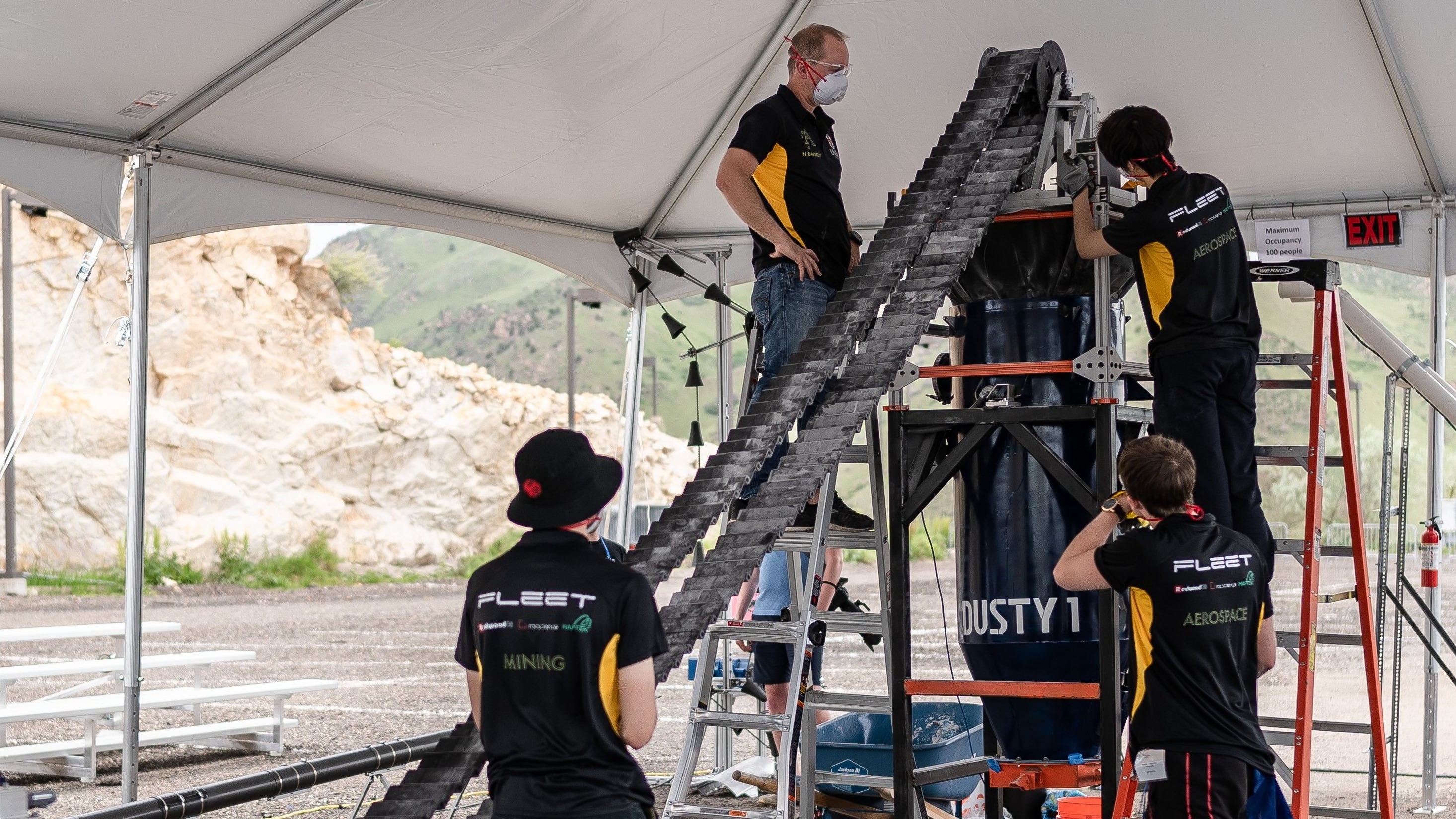
2023 Spaceport America Cup - UNSW Rocketry
The Spaceport America Cup is an annual intercollegiate rocketry competition held at Spaceport America, a commercial spaceport located in New Mexico, USA. This event serves as the premier platform for student rocketry teams from around the world to showcase their engineering skills, innovative designs, and knowledge in the field of aerospace engineering. With nearly 160 teams from across the world, the innovation and engineering prowess on display were very insightful and sparked healthy competition.
‘Our journey with UNSW Rocketry at the Spaceport America Cup was undeniably extraordinary. Achieving 3rd place in the 30K COTS category stood as a testament to our dedication and innovative spirit, earning us a well-deserved spot on the winners' podium. We were thrilled to receive the "Best Media" award, underscoring not only our technical expertise but also our exceptional communication skills in sharing our rocketry passion. Connecting with teams worldwide was an invaluable experience. Interacting with diverse and talented groups allowed us to exchange ideas, gain fresh perspectives, and foster crucial international collaborations, expanding our horizons and deepening our knowledge. In summary, our journey at the Spaceport America Cup showcased our team's strength, innovation, and the bonds formed with like-minded enthusiasts worldwide. We take pride in our accomplishments and look forward to the future of rocketry’. Mr Erik Mueller, UNSW.
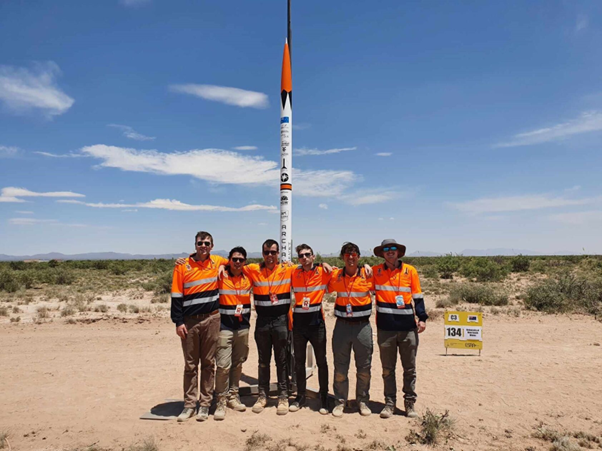
2023 Formula SAE-Australasia competition – Western Sydney University
The Formula SAE competition and its variants, like Formula SAE-A, provide university students a practical platform to apply engineering knowledge, bridging theory with real-world challenges. Participants develop race cars from concept to reality, gaining experience in research, design, manufacturing, management, and finance. These globally operated competitions attract universities worldwide, emphasizing student engineering skills, innovation, and industry readiness. Adhering to competition rules, students lead autonomous projects, promoting accountability. Formula SAE events enhance students' research and design capabilities, challenging them to create high-performing race cars and apply theoretical knowledge. Formula SAE-A specifically offers universities a rewarding environment to showcase academic skills. These competitions empower students to translate classroom learning into practical solutions, preparing them for successful engineering careers through fostering innovation, teamwork, and problem-solving.
‘Participating in Formula SAE has been a transformative experience, enriching both my academic and personal growth. The hands-on learning in engineering, innovation, and entrepreneurship has equipped me with essential skills for my STEM career. Representing Western Sydney University has not only showcased our research capabilities but also forged valuable industry partnerships, enhancing our academic standing. Formula SAE goes beyond the university, driving innovation, economic growth, and STEM education in the community. Despite challenges in the 2023 competition, it deepened my understanding of engineering and fostered strong bonds with peers, strengthening collaboration. The experience prompted reflection on commitment to engineering, reaffirming my dedication to success. While tangible achievements were limited, the intangible insights gained in engineering and personal growth have prepared me for future endeavours. I'm grateful for the opportunity and confident that Formula SAE has shaped me into a capable engineer and leader in the field’. Mr Bowen Fucile, Western Sydney University.
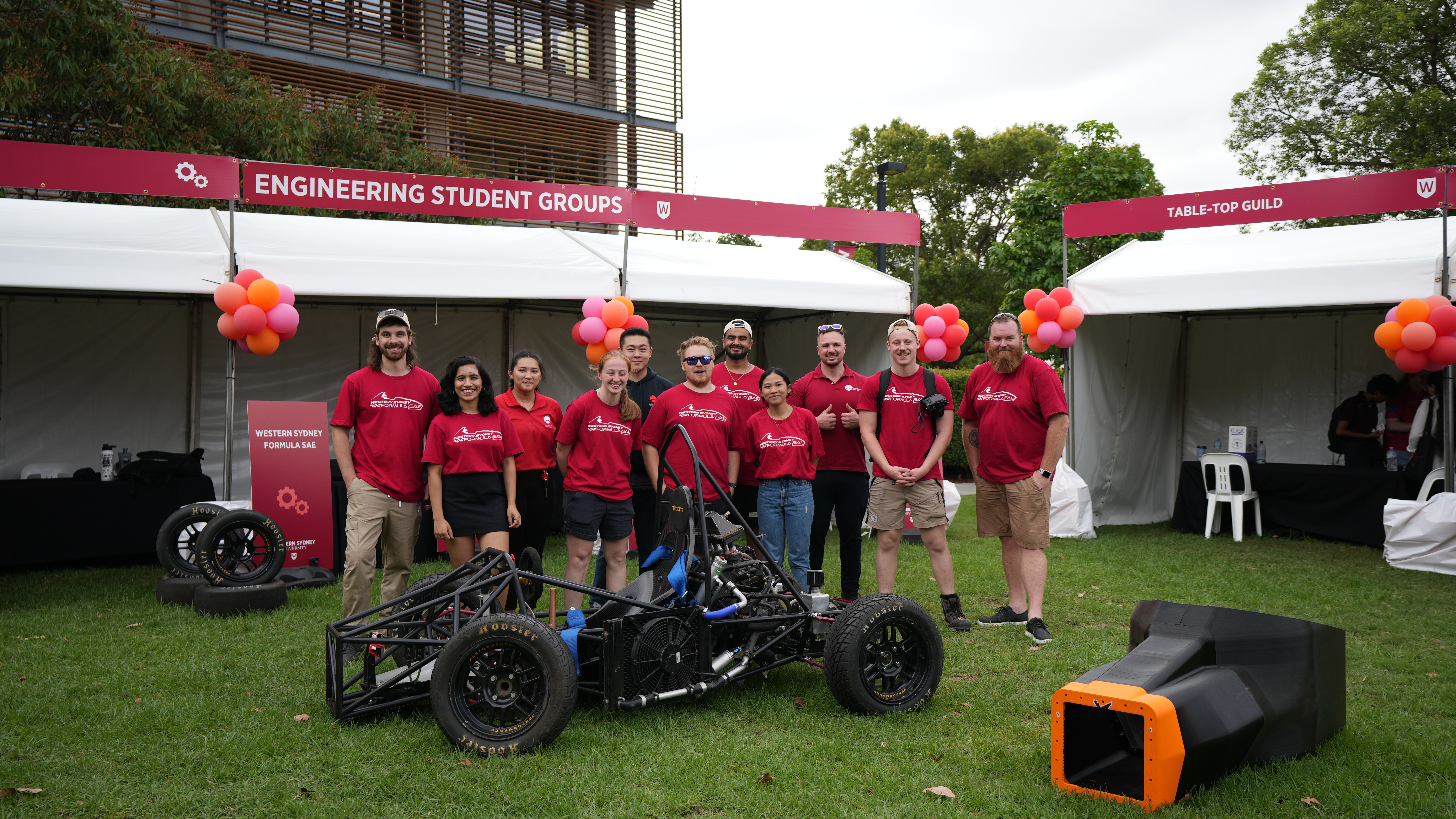
The 2023 Australasian Synthetic Biology Challenge - The University Technology of Sydney Team, ‘GRAVILAB’
Synthetic Biology (referred to as “SynBio”), is an exciting scientific field that re-engineers biology to make sustainable products (e.g., textiles, fuels, foods, medicines). The Australasian SynBio Challenge is an inter-university competition that aims to grow the SynBio community in Australia and abroad. As a unique educational platform, the SynBio Challenge provides university students with the opportunity to carry-out their very own SynBio research project.
‘The Australasian Synthetic Biology Challenge was a hugely beneficial learning experience. It challenged me to think critically and apply my newly acquired science knowledge in unique ways. The lab skills I learnt have also provided me with increased confidence in my abilities. The opportunity to present our research at the Challenge's Final Showcase in Canberra was amazing, and allowed us to network other students and scientists. I can see that this whole experience will assist my future scientific career’. Nathan O’Brien, UTS Science UG Student.
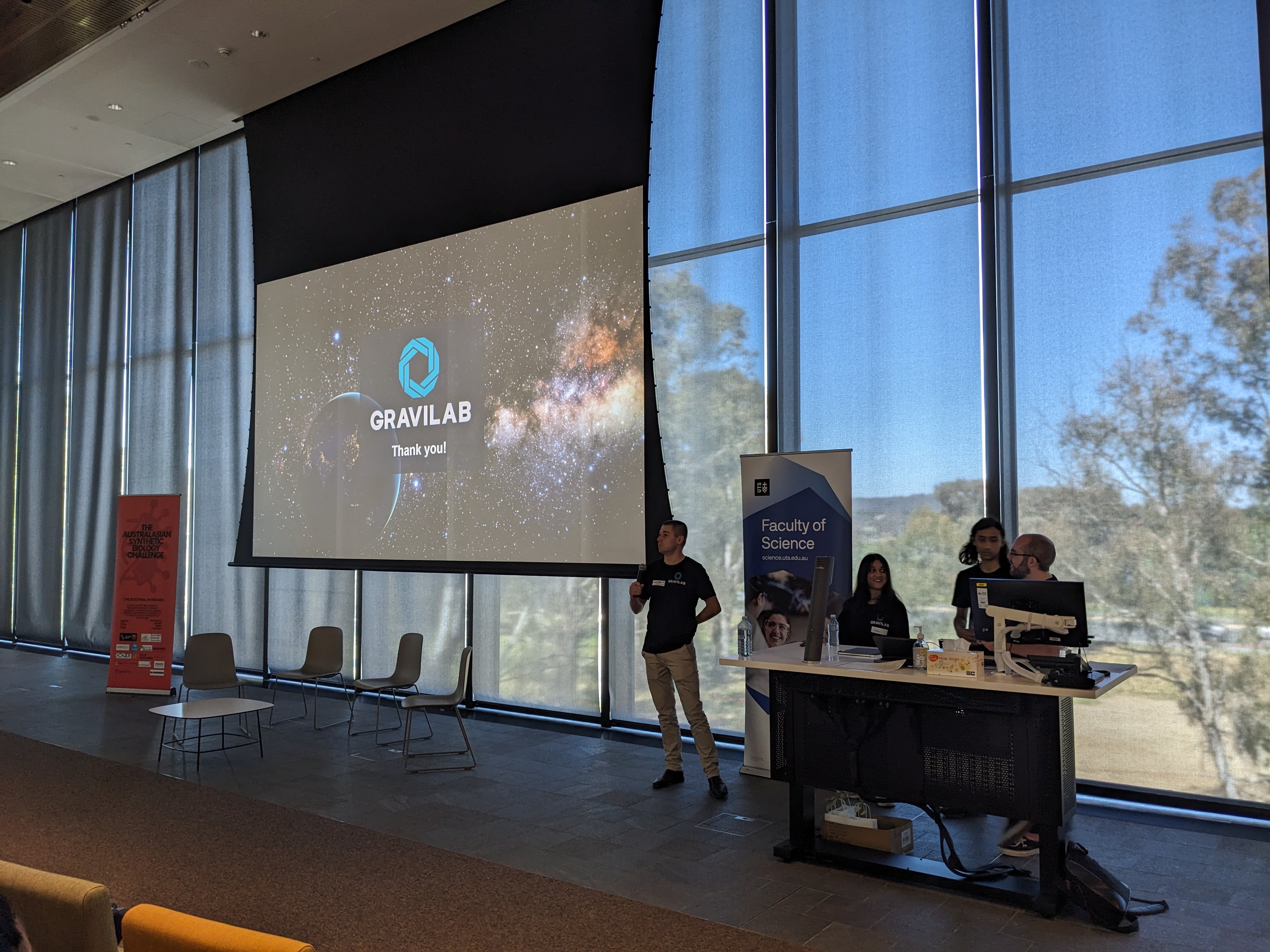
Robocup 2023 – The University of NSW - rUNSWift team
Robocup is the largest robotics and artificial intelligence competition in the world, bringing together student teams from hundreds of countries to learn from each other, gain new skills, demonstrate new approaches to complex real-world problems, and of course, to compete and win!
The rUNSWift team competed in the highest robotic soccer league (Champions Cup) among very capable teams from Europe and the US. The team members had to face many challenges with the robotic hardware, dynamic lighting conditions and of course all
competitors have made significant improvements to their code since last year. The game for the 3rd place against a German team HULKs has ended in a 1-1 tie and had to be resolved in the penalty shootout, which has been very exciting for everyone involved, because it happens very rarely. In the end, rUNSWift prevailed and took bronze medals home.
‘We are very grateful for the support we have received our robotic soccer competition. It has been a great experience for the students to go overseas and compete on the international stage and put Australia on the world robotics pedestal once again’. Mr Claude Sammut, University of New South Wales.
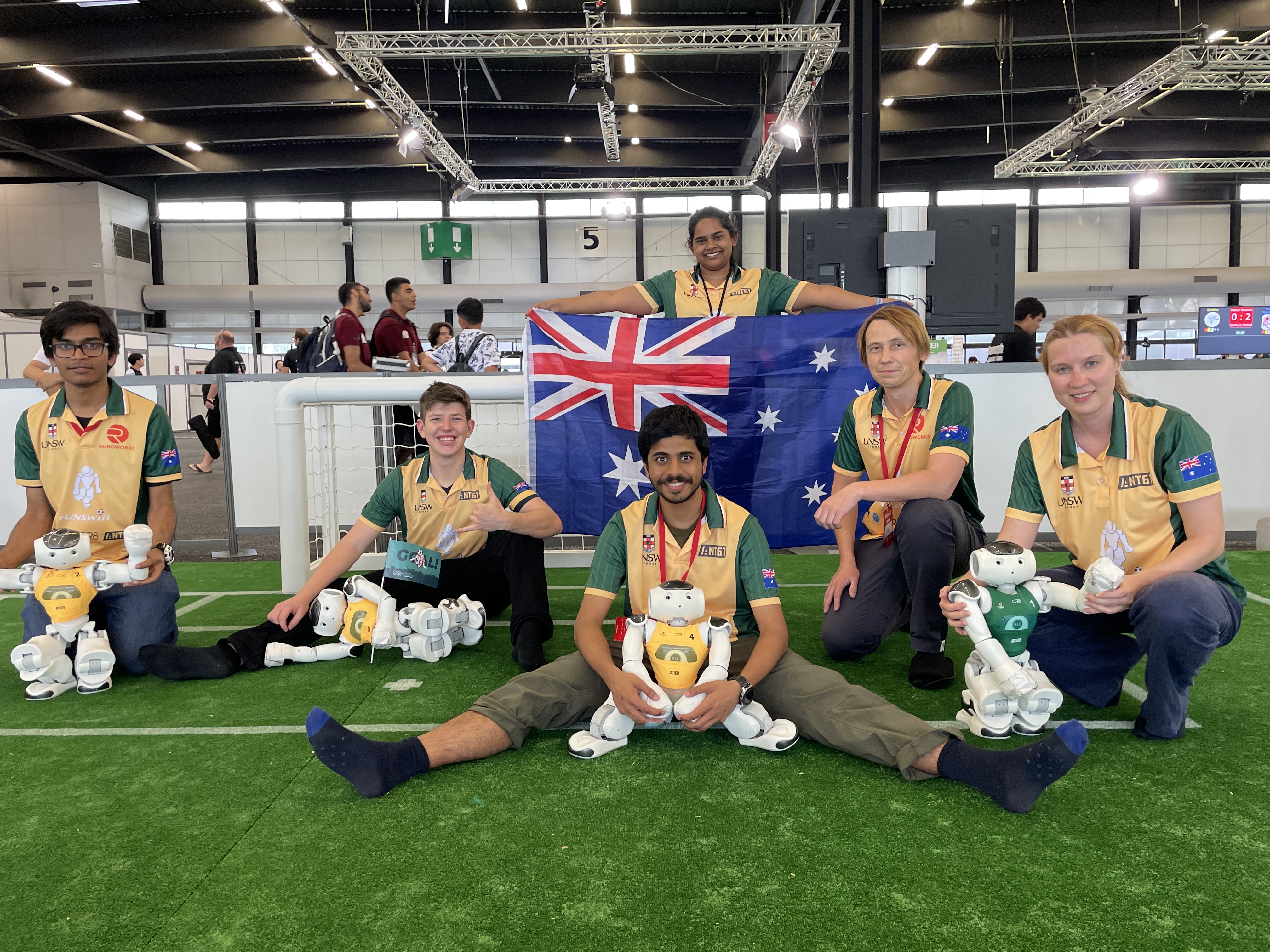
2021 Urban Innovation and Entrepreneurship Competition -School of Engineering, Design and Built Environment, Western Sydney University,
The second Urban Innovation and Entrepreneurship Competition highlighted the United Nations Sustainable Development Goals (UNSDG) with a specific focus on innovative, multidisciplinary, and impactful concepts. Teams were required to showcase the capacity to drive future increase in employment, contribution to 17 UNSDGs, social values, and ability to improve life quality. Projects should present new ideas, technologies, products, and business models with a clear start-up plan. CO2 Concrete team actively participated in this competition, presenting a clear startup plan cantered around the promotion of CO2 Concrete as an environmentally friendly construction material. The competition spanned from April to November 2021, and after two competitive rounds, the team emerged as the Gold Prize winner, receiving RMB 100,000 (equivalent to AUD 20,000).
